
Find your next job at www.pensioncareers.co.uk www.pensions-pmi.org.uk Positive thinking Celebrating The Pinnacle Awards In the hot seat with PMI President Sara Cook Post-pandemic Trusteeship Edition 46 | December 2022 Into the new year with PMI
A message from our CEO

As 2022 draws to a close, it’s easy to reflect on all of the negative news stories.
Here, Gareth Tancred takes the opportunity to point to some positive ones.
2
A message
our
Foreword
from
CEO
ISSUE 46
Looking back, we were awarded Silver for the“Best Learning & Development Programme” for our PMI Academy at the Association of Excellence Awards in October. In the same month we hosted our own ‘Pinnacle’ Awards for the first time, which recognise the best of the pensions profession and celebrate the new ideas making an impact in the pensions world.
Looking forward, we are embarking on a new and inclusive journey, ‘PMI Pathways’. These are designed to support professionals in the pensions sector with greater value and clarity, allowing members to grow and develop their careers.

Our high-quality events continue to flourish and will continue in 2023, as we draw upon more talented thought leaders and expert speakers. Attendees at these events get a chance to meet their peers, enjoy exciting debate, and shape the future of pensions. We will continue supporting our membership and the wider sector through these challenging times, and focus on creating the leaders of tomorrow, able to solve issues we don’t yet know about. None of the above, past, present or future would be achievable without our volunteers and staff to whom we say a huge ‘thank you’.
Gareth Tancred, CEO, Pensions Management Institute
3 Foreword A message from our CEO ISSUE 46
Getting a scheme to buy-out: why it’s important to have the right administrator in place
Barnett Waddingham’s Andy Greig outlines the key factors trustees should consider when appointing new administrators.
Post-pandemic Trusteeship
Hymans Robertson Partner Laura Andrikopoulos sets out her vision for the post-pandemic world of pensions.

Seven things you should know about OCIO
Schroders Solutions’ Chetan Ghosh asks, ‘what is an OCIO and how does it differ from Fiduciary management?’
Longevity swaps: myths versus reality
Insight Investment’s Howard Kearns debunks popular misconceptions surrounding longevity swaps, and highlights their benefits.
Shola Salako of Dalriada Trustees details the essential matters all trustees should know regarding the government’s Pensions Dashboard project.
In the hot seat with Sara Cook K&T Design’s Jason King sits down with PMI president, Sara Cook, in our flagship ‘In the hot seat’ interview.
Employer-related
The Pension Regulator’s Nicola Parish urges trustees to ensure they’re clear ion employer related investments.

Contents December 2022 4 Contents Issue 46 | December 2022
ISSUE 46
Features
22
12
25 30
Coming soon, the Pensions Dashboards...
investment: why trustees must be clear on the rules
26
14
16
TPR Column
Leanne
BlackRock breaks down the most effective measures for mitigating volatility and managing the governance load. The regime change in markets demands fresh ideas
T.Rowe Price’s Justin Thompson unpacks the changing economic environment and how investors should look to respond.
Digitising
Albert Reiter, CFA & CFO of investREP.com, examines the role of digitization in a pension schemes’ day to day work.

Head office Devonshire House, 6th Floor, 9 Appold Street, London, EC2A 2AP
Membership: +44 (0) 20 7247 1452 membership@pensions-pmi.org.uk

Learning and qualifications: +44 (0) 20 7247 1452 PMIQualifications@pensions-pmi.org.uk
Commercial development: +44 (0) 20 7247 1452 sales@pensions-pmi.org.uk Finance: +44 (0) 20 7247 1452 accounts@pensions-pmi.org.uk Editorial: +44 (0) 20 7247 1452 marketing@pensions-pmi.org.uk
Contents December 2022 5
Update 10
Events
the latest upcoming PMI Events. 18
to
who sponsored, entered or attended the
07 Membership update
membership, what's happening? 09 Regional news
news
06 PMI Academy update
exams. 42 Pension Conundrum Our regular pensions puzzle. 44 Service Providers A
directory
services. 49
opportunities
pensions
Contacts
PMI
PMI
Listing
Pinnacle Award winners Congratulations
all
inaugural PMI Pinnacle Awards.
Your
A breakdown of the latest
and notifications from across the PMI’s regional groups.
Spring 2023
comprehensive
of PMI
Appointments An overview of openings and career
in the
industry.
ISSUE 46 32
Month in Pensions: Legal
Moving to a professional corporate sole trustee
34 36
Sackers Associate
Carter explores the forces behind the rise in the appointment of professional corporate sole trustees. PMI Academy Partner Feature
Lightening the governance load in volatile times
38
manager monitoring – the remedy?
Spring 2023 exams
The Pensions Management Institute are open for bookings for the Spring 2023 exams. Deadline for application is 3 February 2023.

Please visit our website for more information: www.pensions-pmi.org.uk/pmi-academy/qualifications
The Spring 2023 exams are being held on the following dates:
• Certificate in Pensions Calculations 20 – 24 March 2023
• Retirement Provision Certificate 29 March 2023
• Award in Pension Trusteeship 29 March 2023
• Advanced Diploma in Retirement Provision 11 – 14 April 2023
• Diploma in International Employee Benefits 13 - 14 April 2023
If you would like to enrol yourself or an employee onto one of the above qualifications, you are able to do so from 24 October 2022 to 3 February 2023 via the APPLY buttons on each of the respective webpages. We encourage all learners to also book on to a revision course as this will increase the chance of a learner passing their exam, as they have direct contact with a tutor who will take them through the preparatory material and ask any burning questions. The presentations and any additional documents will be shared with the attendees after the session.
Apply here: www.pensions-pmi.org.uk/events/pmiacademy-revision-courses-spring-2023
Please note, revision sessions are not meant for any last-minute study or to cram in last-minute revision, they are a tool to enable learners to ensure they are on the right track with their study and go over knowledge they should already have up to a certain level. Similarly to Autumn 2022, we are offering a reduced rate for anyone who books onto a revision course and an exam at the same time via the package deal, which is at a reduced rate of £20 cheaper than booking the revision course at a separate time.
Advanced Diploma in Retirement Provision assignments are also offered to all learners and are a great tool to practise questions on topics from the respective study manual. Learners have the option to mark their assignments themselves or submit their assignments for marking by a PMI tutor. We encourage all learners to make use of this tool, as they will receive specific individualised comments from a tutor regarding submitted assignments.
All learning material has been updated for Spring 2023 and is now available. We encourage learners to make use of study time as early as possible, to give them a good fighting chance of passing the exams.
We wish you all the luck with your study preparation.
6 Membership Update PMI Academy Update Qualifications PMI Academy update
ISSUE 46
Membership update
Your membership, what's happening?
PMI Trustee Group Renewals –
Individual Trustee
2023 PMI Trustee Group Membership RenewalsIndividual Trustee subscription for 2023 is £165
Your membership is due for renewal on January 2023 and subscription renewal notices have been sent out by email.
If you have not received your notice a copy of this can be found in the My Transaction area of your membership portal. Alternatively, please contact the Membership Department at membership@pensions-pmi.org.uk
If you are a Trustee Group Board Scheme member, please contact the Secretary to the Trustees or the responsible person to ensure that your subscription is paid to renew your membership.

Membership Record
Please ensure that your personal details are correctly up to date on the My PMI member portal to ensure that there is no interruption to your membership service at https://my.pensions-pmi.org.uk
If you require a reminder of your username to log in and check your details, please contact the membership team.
Continuing Professional Development (CPD)
Congratulations to all Associates and Fellows who have started to complete their 2022 CPD. Fellows and Associates are reminded that their CPD becomes due on January 2023, and meeting the PMI CPD requirement is compulsory (except where retired/non-working). Under our CPD Scheme, PMI members are required to record at least 25 hours during the year. Please log on to your member portal and update your CPD record.
Membership Membership update 7
ISSUE 46
Certificate Membership
Certificate membership is open to those who have completed one of our qualifications at the Certificate Level – for more information please see the PMI’s website. We are pleased to announce that the following people have been elected to Certificate Membership and can now use the designatory initials “CertPMI”:
Jahangir Hussain
Jamie Baldock
Joshua Ward
Kristopher Connelly
Kristopher Ritchie
Laurie Brown
Liam Hodgson
Lloyd Stallebrass
Salah Bader
Diploma Membership
Theo Birks
Thomas Wong
Carol Graves
Charlotte Pyke
Emma Ashley Sarah Franks
Wendy Drake Julia Sorvoja Marian Gill
Tracy Kite
Lewis Drew
Troy Ramsey
Dennis Mincher
Lindsay Pentland
Rebecca Ferris
Jonathan Boyd James Pension Sarah Mitchell
Diploma membership is open to those who have completed one of our qualifications at the Diploma Level – for more information please see the PMI’s website. We are pleased to announce that the person has been elected to Certificate Membership and can now use the designatory initials “DipPMI”:
Amy Bloomfield
Associate Membership
Associate membership is open to those who have completed the Advanced Diploma in Retirement Provision qualification – for more information please see the PMI’s website. We are pleased to announce that the following members have been elected to Associate Membership and can now use the designatory initials “APMI”:
Alexander Mann
Zoe Kennedy
Fellowship upgrades
Fellowship is open to Associates with five years' membership and five years’ logged CPD.
We are pleased to announce that the following Associate has been elected to Fellowship and is now entitled to use the designatory initials “FPMI” – To find out if you are eligible for PMI Fellowship please contact the membership department at membership@pensions-pmi.org.uk

Membership Membership update 8
ISSUE 46
Julian Russell
PMI Regional News London and Eastern Regional Update
Regional Group
Eastern Regional Group
Sue Curryer stood down as a committee member after some years and we want to thank Sue for her contribution to the Region’s work.
Ross Wilson stood down as chair of the committee and Brenda Kite from Hymans Robertson has now taken over as chair.
Planning is under way for a seminar, hopefully in person, later this year.
If you’re interested in joining the Eastern Region Group, because you either work or live in the area, please contact Laura.Sayer@mills-reeve.com
Brenda Kite, Hymans Robertson LLP
London Regional Group
The PMI London Regional Group would like to thank everyone who attended our business meeting covering pensions fraud on 19 October and our pub quiz on 16 November. We were delighted that Ian Bell (RSM), Sheila Pancholi (RSM), Andy Cassin (WTW) and James Collins (TPO) were able to help our members prepare for the challenges of pensions fraud, and we’d also like to thank CMS for their hospitality. At the time of writing, we’re just putting the finishing touches to our pub quiz and we’d like to thank Sackers for their sponsorship of this event.
It’s been yet another busy year in pensions, and the Committee would like to wish all our members a merry Christmas and a Happy New Year!
ISSUE 46 9
Regional Update News
The PMI’s Eastern Regional group held its virtual AGM on 27 July.
Events

an eventful 2023
Key dates DC & Master Trust Symposium Pensions Aspects Live PensTech & Admin Summit (virtual) Trustee Workbench Pinnacle
Climate
20 April 2023 21 June 2023 28 September 2023 October 2023 23 November 2023 December 2023 Events PMI Events 10
Awards
Summit
ISSUE 46
Enjoy
PMI is hosting a range of pensions-industry-leading events this year, with expert speakers, excellent networking opportunities and extensive partner exhibition and sponsorship packages. Take your pick from the list below, or see pensions-pmi.org.uk/events for the full programme.
Lay trustee accreditation
We’ve launched a new accreditation to help lay trustees formally recognise their expertise and competency in trusteeship.
At its core is the requirement for lay trustees to complete our Certificate of Pension Trusteeship, equipping them with professional trustee standards.
Accreditation has the backing of both our 45-year legacy in setting high levels of excellence in trusteeship and our unrivalled and inclusive network of over 1,000 lay and professional pension scheme trustees.
If you are interested in becoming a lay trustee, discover more here: www.pmitap.org.
We’ll be with you every step of the way.

Getting a scheme to buy-out: why it’s important to have the right administrator in place
Andy Greig Partner, Barnett Waddingham LLP
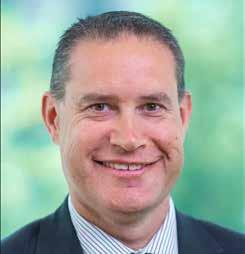
The market for outsourcing pension administration is as busy as ever and for many schemes this is likely to be their final change of administrator. We know what normally influences a change of administrator: poor performance, lack of resource, lack of cohesion with other advisers — especially where the administrator and the actuarial team may have different priorities.
As we enter the autumn of most defined benefit (DB) schemes’ lifecycles, there are additional factors that trustees should be considering when appointing new administrators, especially with many seeking support towards buy-in and/or buy-out. Administration should not be the barrier to a potential transaction. Experience in dealing with such eventualities is vital to avoid missing out on opportunities to transact. There could be other reasons, of course, but for many trustees what they are seeking is the answer to this question: “Who can we (as trustees) trust, both to deliver now, and to support us throughout the endgame process?”
A few years ago, tendering for administration clients was all about building long term relationships and a focus on member experience. The landscape has been changing, with DB schemes maturing year-on-year, and the objectives of the trustees and sponsoring employer
are leading to a change in the tender process, with an eye firmly on guiding the scheme through to a bulk annuity transaction, which means a greater focus on activities such as data analysis and cleansing during the implementation phase. You could view this as a transactional project of say three to five years, where all requirements are known at the outset and the finishing line is full buy-out.
Generally, there have been improvements in the funding position for many schemes, creating greater opportunities for trustees to seek insurer engagement. Typically, with these situations executing tasks in a timely fashion is of the essence. The case study below highlights the importance of the role played by pension administration and how this experience will be invaluable in the years to come.
12
Feature Feature Getting a scheme to buy-out ISSUE 46
We were appointed to administer a scheme with c.12,500 members and assets of c.£2 billion. The administration commenced following a twelve-month transition period.
The trustee and employer wanted the Plan to achieve full buy-out within three to five years. However, the administration was seen as a blocker to this. Day-to-day service to members was slow and needed to be closely managed. Significant project work needed to be done: data cleanse, GMP rectification and equalisation. The Plan had tried to do some liability management exercises. However, the benefits to the Plan had been limited by significant delays and quality issues regarding the provision of data from the administrator.
Our solution
We proposed to integrate the data cleanse and GMP projects with the transition within a set fee proposal. We produced a clear holistic process that made an efficient use of time and resource. We were able to provide clear milestones and deliverables for the four key projects: transition, data cleanse and GMP rectification and equalisation.
Benefits to our client:
• Upfront certainty about cost, what we would deliver and when
• Better data to support calculation automation and strategic decisions
• Optimising the journey to buy-out
• Our commitment to run the scheme in a ‘buy-out ready’ state once the project work had been completed
Providing knowledge, structure and tools to optimise trustees’ strategy for delivering on their endgame is key.
At Barnett Waddingham, we introduced DB Navigator, our unique actuarial, investment and administration approach to help clients consider their endgame journey in several distinct phases.
Times are changing and whilst a scheme implementation is an ideal time to assess data quality for buy-out purposes, there needs to be earlier engagement between trustees, advisers and administrators.
As pension administrators, it’s inevitable that we will all be involved in bulk annuity activity, so it’s time to check that, as pension administrators, you are fully prepared.
Further added value
Given the success of the transition and actions on the data cleanse, this provided the client with confidence that they were on track to meet their desired objective. We were then appointed to provide Scheme Actuary and Risk Transfer Consulting services as the trustees saw the value of working with a small cohesive team from one provider to take them on the final stage of their journey.
Working with our client, the Plan is now run like a programme of work, with the various projects run in parallel with transaction readiness tasks. Our Risk Transfer Consultant attends strategic meetings with our client to ensure all decisions are seen ‘through the lens’ of achieving buy-out.
• What track record do you have in supporting clients through the endgame journey? How can you build on this knowledge and experience?
• Do you have the skills, experience and resource to support your trustees?
• Do you have resource and capacity to deliver on the data cleanse activities in a set timeframe?
• Are you aware of the reporting requirements to insurers post-transaction?
There are clearly lots of questions to help pension administrators get on the right track, but it’s inevitable that the demand for occasional bulk annuity related projects we might have seen in the past will very quickly grow into regular, high volume demand for comprehensive buy-out products.
13
Getting a scheme to buy-out Feature ISSUE 46
Seven things you should know about OCIO
Chetan Ghosh Head of Group Pensions and Investments, Schroders Solutions

Once a niche subsector, the outsourced chief investment officer industry is now the fastest-growing segment in asset management 1. Institutional investors such as defined benefit schemes and defined contribution plans with outsourced CIO providers to satisfy a range of objectives. But what is an OCIO and how does it differ from its better known cousin, Fiduciary Management?
1. What is OCIO?
OCIO stands for Outsourced Chief Investment Officer. The term refers to the full or partial outsourcing of an organisation’s investment decision-making process to a third party, such as an asset management firm or investment consultant. In delegating investment tasks to a third party, the organisation typically retains some level of investment decision-making responsibility—often maintaining control over the strategic asset allocation —while they transfer other duties, such as portfolio implementation, manager selection and oversight, and risk management. This retention of some investment decision-making responsibility is the main differentiator from the more widely adopted fiduciary management model, where typically all decisions around the implementation of the client’s investment objectives are delegated to a third party.
1 Source: Chesnut Advisory Group, “The Widespread Impact of OCIO Growth”, 24 Jan 2022
14 Feature
ISSUE 45 Feature Seven things you should know about OCIO
2. Who can benefit from OCIO?
We believe that OCIO works for all types of investors that want to retain a degree of control over the implementation of their investment objectives whilst using the investment management skills of an OCIO firm. Once a niche subsector, the outsourced chief investment officer industry is now the fastest-growing segment in asset management . Institutional investors such as defined benefit schemes, defined contribution plans, insurance companies, wealth managers and non-profit organisations partner with outsourced CIO providers to satisfy a range of objectives. These include optimising governance structures, efficient strategy and journey plan implementation, satisfying regulatory reporting, lower operational and key person risks and lower costs. We are finding that OCIO conversations, outsourcing while retaining some degree of control, tend to take place with asset owners responsible for a material asset base.
3. What should you look for in an OCIO provider?
An OCIO needs to be able to deliver the key aspects of any investment programme; namely, strategy advice, strategy implementation, regulatory adherence, and all elements of fund management. Further, the ability to construct the offering in a modular way so that clients can tailor the approach in line with their own preferences, e.g., full/partial/closed or open architecture is important, and that is how we offer OCIO to asset owners.
We also believe it is important to test an OCIO on their ability to put themselves in the clients’ shoes and truly demonstrate that with clients’ best interests at heart. Look for a provider that has ex-asset owner practitioners within their OCIO team who have experienced first-hand how challenges manifest and should be solved for clients.
4. How can an outsourced CIO or OCIO model improve governance?
We rarely come across an asset owner that feels their investment decision-making governance structure is perfect. A modular OCIO arrangement allows asset owners to tailor their service to their specific governance and portfolio needs. Typically, when we engage with asset owners, we find there are many aspects of strategy implementation where outsourcing is a desirable outcome from a governance perspective. These operational aspects are too time-consuming for a client to process and outsourcing allows the client to use their time budget on setting and monitoring investment strategy.
5. How can an outsourced CIO supplement resources?
Typically, there are capacity constraints at the asset owner end when it comes to strategy implementation. An OCIO/Fiduciary Management provider will have meaningful teams that are set up to process strategy implementation efficiently in a scalable way, stretching from the selection of underlying fund managers, rebalancing, and liquidity management. In addition, clients will benefit from the vast internal capabilities within the wider business, where specialists on ESG (Environmental, Social and Governance), legal matters and asset class investors can all be drawn upon.
6. How can CIO outsourcing help with cashflow matching and liquidity management?
We believe cashflow-driven investing (CDI) needs central portfolio implementation from an OCIO, or ‘framework manager’, to pull together the information from various portfolios, e.g., to effectively combine LDI (Liability Driven Investment) and fixed income managers, and regularly monitor that the CDI approach is on track. This framework manager can also assist in designing the CDI approach to cater for the evolution of an asset owner's cashflow needs over time. The OCIO provides the mix of skills around technical advice and investment management that we feel are required from the framework manager.
7. In times like today, how would an OCIO handle a downturn?
That depends on the degree of delegation from the client and their objectives. Regardless of the set level of delegation, maintaining communication with clients in testing market conditions is critical. For example, many pension schemes have found themselves ahead of funding plans due to rising government bond yields and the action has been to lock in improvements. Whereas the engagement with the growth portfolio for investors has been to cut risk considering the market uncertainty, where the OCIO has the authority and portfolio management systems to take such action efficiently or, when appropriate, seek approval to cut risk from the client and then implement.
IMPORTANT NOTICE.
The material is not intended to provide, and should not be relied on for accounting, legal or tax advice, or investment recommendations. Any reference to sectors/ countries/ stocks/ securities are for illustrative purposes only and not a recommendation to buy or sell any financial instrument/ securities or adopt any investment strategy. The views and opinions contained herein are those of the individual to whom it is attributed and may not necessarily represent views expressed or reflected in other Schroders communications, strategies or funds. Insofar as liability under relevant laws cannot be excluded, no Schroders entity accepts any liability for any error or omission in this material or for any resulting loss or damage (whether direct, indirect, consequential or otherwise).
15 Feature Seven things you should know about OCIO
ISSUE 46
Feature
Post-pandemic Trusteeship


ISSUE 46
16
Laura Andrikopoulos Partner, Hymans Robertson Feature Post-pandemic Trusteeship
A new world has dawned. Post-pandemic we are slowly getting back to ‘normal’, albeit things won’t ever be quite as they were. As such, now is a good time to ask what has happened to trusteeship in that period, and whether the qualities required to be a trustee have changed as a result?
The UK has reportedly seen a wave of early retirements and resignations over the period of the pandemic, resulting in significant job vacancies across many industries. People have re-evaluated their priorities and future plans as a result of the events of the last few years. But is this the case with trusteeship?
Anecdotally, we’ve not seen a mass exodus of trustees from their roles, although a few more than previously have decided not to re-stand when terms come to an end. What we have seen, however, is increased interest from pensioners in standing for member-nominated trustee vacancies. This may be related to the increased flexibility of hybrid working (the mixture of virtual and face-to-face meetings) which opens the trustee role to a wider range of people. It may also be related to increased efforts by schemes to widen inclusion for trustee roles. Naturally, it’s also related to the fact that most DB schemes are maturing with membership profiles containing a greater proportion of pensioners.
The wider inclusion possible from hybrid meeting practices is a welcomed development for the industry. Pension trustee boards are generally not very diverse; post-pandemic trusteeship offers the opportunity to improve this through:
• The enhanced levels of turnover
• The wider inclusion opportunity arising from hybrid working flexibility – geography is no longer a barrier, nor is the inability to commit to full-day meetings and the extra time required for travel

• Increased awareness of the importance of diversity of thought to high functioning boards. This is an important component of collective effectiveness. Whilst not a direct consequence of the pandemic, it’s worth noting that the divergence between DB and DC trustee boards has increased during the last few years. The focus for many DB trustees is on the journey to buyout, with detailed projects underway on GMP Equalisation, preparation for the new funding regime, and enhanced reviews of governance in light of TPR’s consolidated code of practice requirements. DC trustees for small to medium-size schemes are more likely to be found in deep consideration of sponsor proposals for moves to the DC Master Trust market. This divergence of focus as each market develops and matures makes the life of trustees of hybrid schemes more complex than ever, as the range of knowledge and issues multiplies.
In summary, we might describe post-pandemic trusteeship as ‘all change’ – new trustees, enhanced opportunity for diversity, inclusion and agile working, and more complex than ever. These changes suggest that the skills required to be a trustee may be changing in focus; the ability to work more nimbly, to participate effectively in the online world, and to keep up with the enhanced pace of change are perhaps the top qualities of the 21st century trustee.
Feature 17 Post-pandemic Trusteeship
ISSUE 46
Pinnacle Awards
A very big thank you to everyone who sponsored, entered or attended the inaugural PMI Pinnacle Awards 2022.
We are delighted to announce that the evening was a great success and a credit to the UK pensions industry.
Held at the auspicious Londoner Hotel in the capital’s Leicester Square, and hosted by the inimitable Ore Oduba, the night saw our twelve worthy winners collect their prestigious awards – the very first PMI Pinnacles to be handed out.
Congratulations to all of you!

18 Events Pinnacle Awards ISSUE 46
PEOPLE CATEGORY AWARD WINNERS




Events Pinnacle Awards
19
Star in the Making Beth Finch Barnett Waddingham LLP Leader of the Year Daniel Gerring Travers Smith
Team of the Year Cadent Pension Team Cadent
Lifetime Achievement Award Simon Freeman Pendragon
ISSUE 46
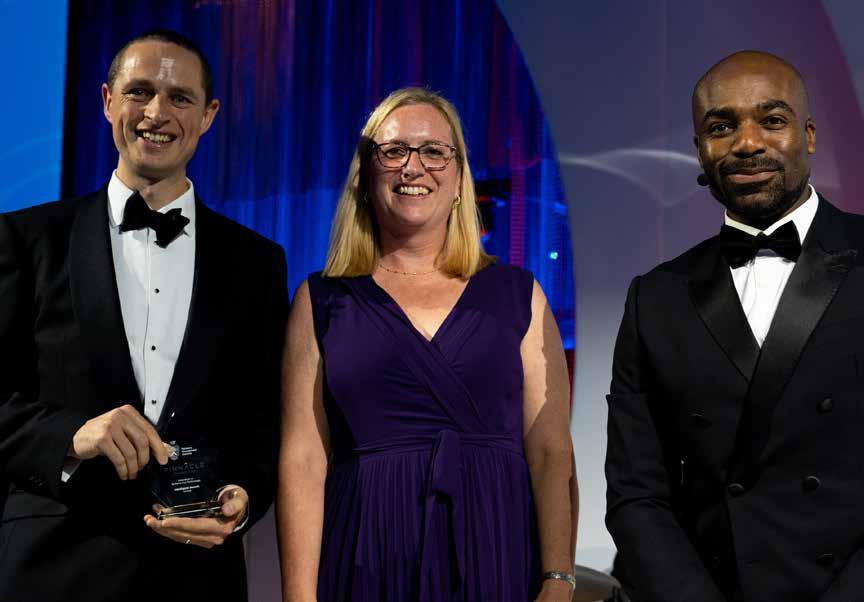



INNOVATION CATEGORY AWARD WINNERS 20 Events Pinnacle Awards ISSUE 46 Innovation in Systems and Technology Intelligent Search Knowa Innovation in New Product or Service My Pocket Pension Mantle Services Limited Innovation in Learning, Development and Talent Retention O&T Academy Mercer Innovation in Trusteeship Sharing pension knowledge, end of year Trustee update B&CE, provider of The People's Pension




21 Events Pinnacle Awards Impact on Climate Firmwide Environmental Initiatives Burges Salmon LLP Impact on the Profession 10000 Black Interns / Dawid Konotey-Ahulu Redington Impact on Customer Experience Caring for the vulnerable Equiniti Impact on Society LGBT+ charity Just Like Us Travers Smith LLP IMPACT CATEGORY AWARD WINNERS ISSUE 46
Longevity swaps: myths versus reality
Howard Kearns Longevity Pricing Director, Insight Investment

Longevity swaps can offer pension schemes an effective way to reduce a key risk, but they face some popular misconceptions. We aim to correct these, showing that longevity swaps can offer clear benefits for pension schemes.
What are longevity swaps?
Longevity swaps are agreements that aim to help pension schemes reduce longevity risk. Longevity risk is the impact on a pension scheme of pensioners living longer than expected, resulting in paying pensions for longer and the need to manage risk for longer than anticipated.
Under the terms of the longevity swap contract, a scheme makes a series of agreed monthly or quarterly ‘fixed’ cashflows payments to the reinsurer, typically over the next 40 to 50 years. These payments will reflect an agreed best-estimate projection of the pensions due to the insured population and will be linked to inflation much as the scheme benefits may be. They will also include the reinsurer’s fee for taking on the longevity risk.
In return, the scheme receives payments from the reinsurer equal to the actual pensions due to the insured population, which will vary depending on the realised longevity experience of the individual lives. As a result, the pension scheme is no longer exposed to the risk of the insured population living longer than expected. In practice, reinsurers can only transact with insurers, so pension schemes wishing to hedge longevity risk must do so via an insurer.
Fig. 1: Longevity risk is now the largest unhedged risk for the average UK pension scheme
22 Feature Longevity swaps: myths versus reality
Feature
Source: Club Vita, April 2021. Based on information in the Pension Regulator’s Scheme Funding Analysis 2020 and 2010 and the PPF’s Purple Books, approximately converted. Figures show the drivers that would increase the deficit in the average of the worst 5% (1 in 20) outcomes.
ISSUE 46 Unhedged longevity Unhedged yields Asset risk 32% 52% 16% 2020 Unhedged longevity Unhedged yields Asset risk 45% 25% 30% 2010
Myth 1? – Longevity risk is not a significant risk
Reality – Longevity risk now represents a substantial proportion of the total risks facing the average pension scheme. Other risks, such as interest rate risk and inflation risk, have largely been hedged.
Over the last 10 to 15 years, most pension schemes have reduced their exposure to growth assets and have hedged material amounts of interest rate and inflation risk but left longevity risk largely unhedged. According to the latest-available analysis by Hymans Robertson, of the remaining risk faced by pension schemes in 2020, more than half (52%) was posed by unhedged longevity. Ten years previously, it was only a quarter of the risk.
Myth 2? – Longevity swaps are complex and difficult to implement
Reality – Although they can be time-consuming to set up, increasing standardisation is making the longevity swap implementation process and ongoing administration less complex.
Implementation is generally simpler today than in many earlier cases, as structures become more standardised and straightforward. Using a previously executed contract as a starting point for contract drafting can help in most transactions and contributes to developing consistency and standardisation. After initial set-up, regular management need not be onerous for the pension scheme, with much of it typically delegated to the scheme administrator.
Myth 3? – Longevity swaps are expensive
Reality – The costs associated with setting up and administering longevity swaps should be viewed alongside the potential costs of a negative longevity shock, which may be substantially greater.
Longevity swap agreements carry some initial set-up costs, as with any similar transaction, but thereafter, on an ongoing basis, the main cost associated with a longevity swap will be the risk fee payable to the reinsurer. For a pensioner-only transaction (where deferred liabilities are not included), the risk fee will typically be in the region of 3% to 4% of the projected pension cashflows. Broadly speaking, this will equate to an increase in the required rate of return from the assets backing those pensioner liabilities of approximately 0.25% to 0.33% per annum. (This estimate assumes the fee is spread over a duration of the pensioner liabilities of about 12 years.)
Myth 4? – Longevity swaps are only for the largest schemes
Reality – Although the average size of publicly announced longevity swaps has increased to more than £3bn in recent years, we believe that we will see more medium-sized schemes transact in the market as it continues to develop and grow. We understand that the majority of longevity reinsurers would consider transactions from around £300m upwards, suggesting that smaller transactions are potentially viable.
Myth 5? – Longevity swaps are a barrier to buy-in
Reality – Developments in the novation of longevity swaps mean that future conversion to a buy-in does not need to be a hurdle preventing schemes from hedging their longevity risk today.
As the process of novating longevity reinsurance agreements becomes more familiar for the key participants such as insurers, reinsurers, consultants, and lawyers, we expect a steady flow of such conversions each year. Converting a longevity swap to a buy-in entails three primary actions, all of which must take place simultaneously:
• The pension scheme terminates the longevity insurance agreement it has with the insurer.
• The pension scheme sets up a new buy-in insurance policy with a buy-in insurer.
• The longevity reinsurance agreement is novated to stand between the reinsurer and the new buy-in insurer.
Myth 6? – Longevity swaps only cover the lower-risk pension members
Reality – Reinsurers are increasingly willing to provide coverage to nonpensioner members, who in some cases will represent the majority of a scheme’s longevity risk.
To date, two publicly announced transactions have included nonpensioner members: the AXA UK Group Pensioner Scheme (95% nonpensioner) and UBS (UK) Pension and Life Assurance Scheme (50% nonpensioner). We expect to see more such transactions in the coming years.
IMPORTANT INFORMATION
Investment in any strategy involves a risk of loss which may partly be due to exchange rate fluctuations.
This document is not a contractually binding document and must not be used for the purpose of an offer or solicitation in any jurisdiction or in any circumstances in which such offer or solicitation is unlawful or otherwise not permitted. This document should not be duplicated, amended or forwarded to a third party without consent from Insight Investment.
Insight does not provide tax or legal advice to its clients and all investors are strongly urged to seek professional advice regarding any potential strategy or investment.
For a full list of applicable risks, investor rights, KIID risk profile, financial and non-financial investment terms and before investing, where applicable, investors should refer to the Prospectus, other offering documents, and the KIID which is available in English and an official language of the jurisdictions in which the fund(s) are registered for public sale.
Do not base any final investment decision on this communication alone.
Please go to www.insightinvestment.com
Unless otherwise stated, the source of information and any views and opinions are those of Insight Investment.
Telephone conversations may be recorded in accordance with applicable laws.
For clients and prospects of Insight Investment Management (Global) Limited: Issued by Insight Investment Management (Global) Limited. Registered office 160 Queen Victoria Street, London EC4V 4LA. Registered in England and Wales. Registered number 00827982. Authorised and regulated by the Financial Conduct Authority.
FCA Firm reference number 119308.
© 2022 Insight Investment. All rights reserved.
23 Feature Longevity swaps: myths versus reality
ISSUE 46


Dalriada Trustees provides a wide range of professional trusteeship services to pension schemes, including: Non-executive trusteeship Sole trusteeship Executive trusteeship Pension management support Scheme secretarial services www.dalriadatrustees.co.uk Professional independent trustees for pension schemes
Feature
Coming soon, the Pensions Dashboards...
Shola Salako Accredited Professional Trustee, Dalriada Trustees

Earlier in the year, the government issued a consultation asking questions and seeking views on the Pensions Dashboards.
To remind us, the Pensions Dashboards will be online digital tools that will enable pension scheme members to access all their pension information including the state pension in one place. The whole premise of the dashboards project is to connect people with their pensions.
The consultation looked at a number of issues including how dashboards will work, the provision of information, what occupational schemes are required to do and staging, i.e. the sequence of scheme connection and compliance enforcement.
The consultation is now closed and initial guidance has been issued, with updated guidance expected later in the year. It’s clear that the Pensions Dashboards project is going ahead with, at the time of writing, final regulations about to be laid before Parliament.
The following are matters we as trustees need to be aware of:
• Data - this includes speaking to our administrators and monitoring the condition of the data. Schemes will have data that will be sufficient for the purposes of scheme administration, however there’s a need to ensure the data is good enough for the information and calculations required for the Pensions Dashboards.
• Connectivity - Trustees need to ensure connectivity to the dashboards is available, noting that there may be more than one dashboard. Members will in all events be able to access one that is publicly owned and provided by the money and pension service (MaPS). It’s clear this might be a resource issue for many schemes and trustees need to consider how to work with their administrators to build capacity to deal with what is required. For the largest schemes, connectivity and go-live dates begin from 2023.
• Statutory Money Purchase Illustrations (SMPI)In addition to this, there are associated changes in October 2023 for SMPIs that are issued on an annual basis. The requirement means the assumptions will be aligned with the Pensions Dashboards and this applies to all schemes regardless of the size.
• Penalties - The Pensions Regulator is being given new powers to penalise trustees if they don’t comply with the dashboard requirements; these include up to £5,000 for individual fines and up to £50,000 for any instance of a single compliance breach.
In view of the commitment to the dashboard implementation, we, as trustees, must remain vigilant about our responsibilities and ensure the schemes we serve can meet these new requirements. The value for members to have the level of connectivity to an important asset like their pensions means trustees must make time in a busy calendar to ensure a successful dashboard compliance.
25 Feature Coming soon, the Pensions Dashboards...
ISSUE 46
In the with Sara Cook
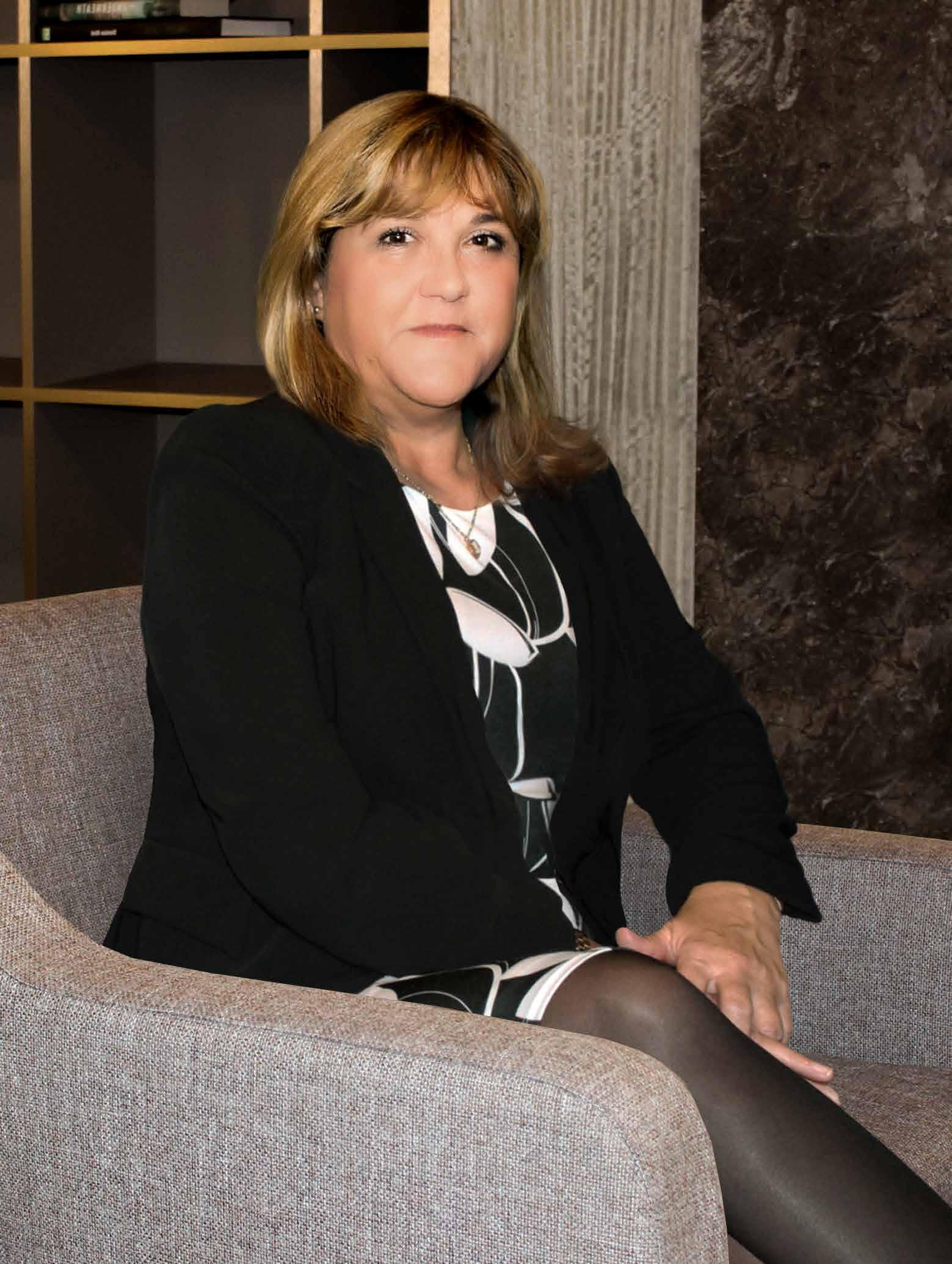
Spotlight In the hot seat with Sara Cook
Trustee
26 ISSUE 46
h t seat
In our flagship 'In the hotseat' interview, K&T Design’s Jason King sits down with PMI president, Sara Cook, to take a deep dive into her career, and the state of the industry.
Jason: Let’s start with how you ended up in the hotseat today? How did you get into pensions?
“
I fell into the pensions industry. I’m descended from Dutch dyke builders, who came over to stop the Fenlands from flooding, and I’m the first person in my family to have ever gone to university.
Sara: I got a good degree in law, but I decided that wasn’t what I wanted to do. So, I temped for a while and considered my options. I applied for lots of different financial services jobs: apprenticeships in the bank, roles training to become an accountant, and a job to train as a pensions administrator.
Soon enough, I ended up with three job offers, which used to be delivered to your doorstep in those days. Two were for roles at accountancy firms, and one was for the role in pensions.
Ultimately, I reflected on the people I met, and the interview that I’d had, and I decided that pensions would be the most interesting. And here I am, still in the industry today.
J: And how long have you been involved with the PMI?
S: About thirty years. It started with a visit to a regional PMI group to hear a particularly interesting speaker. I was shy in those days, but people were open to someone in their early twenties coming along. Before long, I became a committee member, then the chair of that regional meeting.
I was co-opted onto the advisory council in about 2007/2008, and I’ve been on it now continuously, bar one year for rotation.
J: Did you always want to be president? “
S: I didn't make it, that was Penny Green, and we have had two further lady presidents since, both called Lesley.
But in all seriousness, it’s a great privilege. I’m still in awe. It’s been an ambition of mine for the best part of thirty years, and to have finally got here is like, ‘wow, I did it.’
J: Would you say that your journey to president was fairly smooth sailing?
S: Not at all. In my career, I’ve been made redundant twice. Once because the firm I was with were closing the office and on the second occasion due to restructuring.
What I would say is that networking is vital. I got my role with my current employer through networking at PMI events.
That’s something the next-gen PMI network is trying to do, to give people early in their careers an opportunity to talk to people that might help them progress their careers.
Trustee Spotlight In the hot seat with Sara Cook
Back when I started out, presidents were all men of a certain age. So, I thought to myself, ‘I’m going to be the first lady president of the PMI.’
27 ISSUE 46
J: What challenges do you believe people starting their pensions careers face today?
S: Over the last couple of years when everyone was working at home because of the Covid-19 pandemic, I think a lot of people felt a bit isolated, but there was a sense of all being in it together.
Now, people have adapted to hybrid working, and for many roles that works. But I do worry that working from home means a lot of people are missing out on opportunities to broaden their understanding of their work. Especially young talents.
J: Do you think the pensions industry is moving towards a more sustainable future?
S: The industry is responding to changes in policy that require trustees to consider environmental, social and governance (ESG) factors not only in terms of setting out their policies in their Statement of Investment Principles but also reporting on how they implement them.
I am sure that there will be developments coming down the line in this area which will make it easier for Trustees to measure the impact that their policies are having.
It’s about the osmosis effect. It benefits junior employees to see in person how leaders deal with difficult situations, so they get that soft skill learning, and they’re thinking, ‘crikey, that’s how you do it.’
J: In terms of young talents, and in a wider sense, how do you think we could introduce more diversity into the industry?
S: I think a number of people think diversity only means different genders, different ethnicities etc. And, whilst those are vital factors, I believe it to be broader than that.
Diversity is also about people that have come from different backgrounds, with different life experiences and a diversity of understanding.
Sometimes, people that come from less privileged backgrounds are afforded fewer opportunities to find out what their options are. I believe that partnering between firms and schools from all around the country can help remedy this.
It’s great to see that firms are becoming more aware of their social impact and responsibilities, and the good they can do in their local communities.
J: And are today’s working practices sustainable in terms of employee wellbeing?
S: Well, when I started out, I didn’t even have a computer on my desk. Instead, I had a pile of papers that I couldn’t see over, and I’d have to fight for a place on one of only four computers. But, once you sent off a memo, you’d have at least two days before it came back.
I think we have all become too reliant on sending email. Picking up the phone and talking about a problem can sometimes be more efficient - and reduce email fatigue.
“
I believe that, as industry leaders, if we want to nurture the stars of the future we need to be visible.
“
I think there is an educational role for the PMI could play here.
“
Now, thanks to technology, society expects an instant answer to everything. That level of pressure on individuals today does concern me.
Trustee Spotlight In the hot seat with Sara Cook 28 ISSUE 46
J: So, If you were talking to you in the mid 80s, thinking about giving the pensions industry a go, what advice would you give yourself?
S: Ask questions.
“
Don't just sit and do your job - ask questions.
People who grow are people that question things. They don’t just follow instructions; they get to the bottom of why they’re doing something.
And don’t be afraid to ask for help. I really enjoy helping people to develop. I see it as both an obligation and a privilege to pass on knowledge - it's how we support continuous improvement.
99% of the time, there’s someone there that will be delighted to help you to develop and understand what you need to do. So just ask!
J: How would you attract young talent to the industry? What’s the elevator pitch?
S: If I think back to the start of my career as a pensions administrator the main emphasis was on being able to calculate members' benefits and pay pensions.
Now we are better at describing what this really means - at the bottom line having good scheme governance processes in place helps to ensure that people receive their benefits / retirement income on time and are able to use that to support themselves in later life.
That’s important work, and I think that message connects with people.
J: And how do you attract people with lots of pensions industry experience to join the PMI?
S: We’re creating different pathways towards senior positions.
When I first started out, the only pathway to fellowship was to take the equivalent of the Advanced Diploma in Retirement Provision. PMI have consulted with the membership and is introducing different routes to Fellowship.
PMI have also introduced the Member by Experience, which recognises the expertise of established talents who have not taken the ADRP.
EPMI members gain access to the benefits of PMI and enable them to use the letters EPMI after their names.
J: Speaking more broadly, what do you believe the biggest challenges are for the pensions industry in the year ahead?
S: With war on the European continent, and the potential for lockdowns in the future, there’s a sense of uncertainty, and the threat of economic disruption. But I believe the greatest challenge for the industry surrounds member engagement within DC pensions. I do worry that economic pressures will result in future pensions poverty.
Some people have to make a choice between feeding their children or heating the room.
There’s a concern that people could have to work for longer to be able to afford to stop working, and that has a knock-on effect on the future career aspirations of the next generation.
J: With all that in mind, what are your hopes for the industry, and for the remainder of your premiership?
S: I do think there’s still lots to be hopeful for. From a professional standpoint, I’m hoping for more certainty for the industry. Specifically, that some of the regulatory changes that have been held up for quite some time by Covid, political uncertainty and societal events, will come to fruition in the Autumn or beginning of next year.
On a personal level, I have been involved in discussions about the PMI's Strategic Plans - it would be great to see them gaining momentum during my presidency. And, on a more immediate note, I’m really looking forward to wearing my badge of office with pride.
Trustee Spotlight In the hot seat with Sara Cook 29 ISSUE 46
Employer-related investment: why trustees must be clear on the rules
 Nicola Parish Executive Director of Frontline Regulation, The Pension Regulator
Nicola Parish Executive Director of Frontline Regulation, The Pension Regulator

30
Column
Column Employer-related investment: why trustees must be clear on the rules
TPR
TPR
ISSUE 46
Keeping other peoples’ retirement savings safe isn’t always an easy job, but it is certainly an important one. Having the right level of knowledge and understanding is vital if trustees are to meet regulatory expectations. Executive Director of Front-line Regulation at The Pensions Regulator, Nicola Parish, urges trustees to make sure they’re clear on employer-related investments.
Trustees are the first line of defence for their pension savers. Ultimately, they are the ones responsible for keeping savers’ cash secure, money many will rely on to provide the retirement they expect. That’s why it’s so important trustees have the right level of knowledge and understanding to ensure they do not make decisions which could put peoples’ pension pots in jeopardy or risk leaving them in breach of pensions legislation.
That’s why I’m urging trustees to make sure they are crystal clear on the restrictions around employer-related investments (ERI). These are important rules designed to safeguard savers’ funds and are there to stop employers using their pension schemes to prop up their businesses, which would obviously be a risk if the employer becomes insolvent.
Typical examples of ERI can include shares or securities issued by the employer, investments in land or property used or occupied by the employer.
ERI rules are set out in section 40 of the Pensions Act 1995 and in the Occupational Pension Schemes (Investment) Regulations 2005. In brief, and subject to certain exceptions, not more than 5% of the current market value of pension scheme assets may, at any time, be invested in ERI.
In addition, some ERI is absolutely prohibited, including an employer-related loan or guarantee and ERI transactions at an undervalue. ERI restrictions not only apply to investments in the employer, but also to investments in parties associated or connected with the employer, and in property used by the employer or its associates.
A trustee who agrees to make an ERI in breach of the restrictions may commit a criminal offence and be subject to prosecution. And, unlike some other offences, the rules around ERI do not require a prosecuting authority, such as TPR, to prove the trustee knew their action would cause a crime to be committed.
The maximum penalty for a breach of ERI rules is an unlimited fine and/or a prison sentence of up to one year. There’s also likely to be significant reputational damage for those convicted.
In March, a TPR prosecution of one former trustee, who admitted illegally investing money from three pension schemes in a company associated and connected with the employer, saw him handed a two-year suspended prison sentence, disqualified from acting as a company director and ordered to pay costs of more than £20,000. Quite rightly, our prosecution was widely reported in local and national newspapers.
And in August, two trustees pleaded guilty to ERI because they made loans amounting to £236,000 from a company pension scheme to the scheme’s employer in a prosecution brought by TPR.
The pair, who were replaced by TPR as trustees of the pension scheme in December 2020 by independent professional trustees, admitted making illegal loans of £96,000 in June 2017 and a second for £140,000 in March 2018.
We understand that funding arrangements between schemes and employers are increasingly complex but it’s vital that trustees, who are ultimately responsible, are clear that any ERI they agree to is within the law. Where there’s doubt trustees should take specialist legal advice on whether the investment is lawful. We expect trustees to have adequate internal controls in place to satisfy themselves that their scheme is well managed in accordance with the law. Trustees should also visit our website – tpr.gov.uk – and access the free Trustee Toolkit to ensure they have the skills and knowledge to do their job.
31 Employer-related investment: Why trustees must be clear on the rules TPR Column
ISSUE 46
Month in Pensions: Administration Month in Pensions: Legal
Moving to a professional corporate sole trustee
 Leanne Carter Associate, Sackers
Leanne Carter Associate, Sackers

There has been a considerable rise in the number of pension schemes appointing a professional corporate sole trustee (“Sole Trustee”) in recent years, and that trend seems set to continue.
That’s not to say that the trustee board model is broken and, for many schemes, it may be the right model for them both now and in the future. But for those employers and schemes who want to explore the Sole Trustee route further, here are a few factors to bear in mind as a starting point.
Resourcing trustee roles. Some pension schemes, particularly smaller ones that are closed to future accrual, are finding it increasingly difficult to fill their member nominated trustee (MNT) vacancies. Pension schemes with a Sole Trustee are exempt from the MNT requirements.
Decision-making. Sole trusteeship will rarely mean that one individual will make all the decisions for the pension scheme. However, it is important to be clear about the governance arrangements in place to ensure that decision-making is informed by appropriate collective expertise and diversity of thought.
Knowledge of the pension scheme. A Sole Trustee may not benefit from the same level of valuable schemespecific historical knowledge and understanding of the scheme that some trustee boards benefit from. So it may be necessary to consider steps to take to avoid a loss of this knowledge, continuity and consistency.
Flexibility. The Sole Trustee model may offer more flexible ways of working without the need for regular formal trustee meetings.
Expertise. The ever-increasing complexity of pensions means that maintaining the required knowledge is a time-consuming and demanding duty for trustees. By definition, a Sole Trustee will be an experienced pensions professional who will be up to speed with the complexities of running a pension scheme.
Member representation. With a Sole Trustee, the individual making decisions about the running of the pension scheme may not be as closely connected to the membership as a trustee board. If steps are not taken to counteract it, this could result in members feeling disconnected from their pension scheme.
Independence from the employer. As it is the employer that usually appoints the Sole Trustee and puts in place the contractual terms, Sole Trustee firms should have processes in place to manage any potential conflict scenarios and demonstrate independence – a point brought out in the Association of Professional Pension Trustees’ Code of Practice for Sole Trusteeships. For those considering a Sole Trustee, it will be important to understand a trustee firm’s particular approach to this.
Appointing a Sole Trustee. The idea is that a Sole Trustee would be appointed to replace the existing trustee board. The employer often has the power to appoint and remove trustees, but the position under the scheme rules should always be checked. Contractual terms would also need to be put in place with the Sole Trustee.
32
MIP Legal Moving to a professional corporate sole trustee
ISSUE 46
Delve into a world of pensions content



white papers, articles,
podcasts. Access
industry
Sign up now savvyinvestor.net/pmi Join over 60,000 institutional investors today to become a part of the
network for the pensions and investment industry. @savvyinv Savvy Investor
Pensions insights at your fingertips including
webinars and
the best content from across the
– in one place, completely free.
world’s leading knowledge
PMI Academy Partner Feature
Lightening the governance load in volatile times
34
Academy Partner Feature Lightening the governance load in volatile times
PMI
ISSUE 46
What fiduciary management brings
Hiring a fiduciary manager allows a pension fund scheme to tap into skills and knowledge that some trustees may not have and are hard to acquire. They can bring specialist knowledge on different investment products and financial markets in other parts of the world.
Fiduciary managers can also potentially save money on performance fees by aggregating fund purchases.
Outsourcing the day-to-day investment decisions enables a pension fund scheme to be more agile in volatile markets. Fiduciary managers can act quickly to protect the pension scheme’s funding level when markets are tumbling or capitalise on market opportunities when they are rising. They are watching and discussing the change in financial markets every day.
Fiduciary management also brings a more objective approach to managing investments. Trustees often have emotions attached to previous investment decisions and so might find it harder to make a change or to cut ties with poorly performing investment managers. It can take time to agree changes, with meetings between trustees often being months apart.
Easing the regulatory headaches
There is a constant stream of new legislation affecting how pension fund schemes are run. It can be a daunting task for a trustee to implement and comply with each wave of new rules. A fiduciary manager can help trustees to navigate this. They can spot key legislative and regulatory changes that will affect the pension market. We work with trustees to help them think through and comply with the latest regulations.
Trustees can focus on what really matters
Delegating the day-to-day implementation of an investment strategy to a fiduciary manager frees up trustees’ time, eases the stress and allows them to focus on the bigger picture. It provides both the fiduciary manager and trustee with clearly defined roles. Trustees can concentrate on the pension scheme’s funding goals and how to reach them, while the fiduciary manager focuses on how to adjust the portfolio as financial markets rise and fall.
With no signs of the demands on trustees easing, we expect more to turn to a fiduciary manager to ease the governance burden.
What sets BlackRock apart from our peers is our proprietary investment and risk management software system, Aladdin©. It combines sophisticated risk analytics and portfolio management tools on a single platform, allowing clients to see their whole portfolio and helping them to manage the risks.
RISK WARNINGS
Capital at risk. The value of investments and the income from them can fall as well as rise and are not guaranteed. Investors may not get back the amount originally invested. Important Information. Issued by BlackRock Investment Management (UK) Limited, authorised and regulated by the Financial Conduct Authority. Registered office: 12 Throgmorton Avenue, London, EC2N 2DL. Registered in England and Wales No. 02020394. Please refer to the Financial Conduct Authority website for a list of authorised activities conducted by BlackRock.
Any research in this document has been procured and may have been acted on by BlackRock for its own purpose. The results of such research are being made available only incidentally. The views expressed do not constitute investment or any other advice and are subject to change. They do not necessarily reflect the views of any company in the BlackRock Group or any part thereof and no assurances are made as to their accuracy.
This document is for information purposes only and does not constitute an offer or invitation to anyone to invest in any BlackRock funds and has not been prepared in connection with any such offer.
© 2022 BlackRock, Inc. All Rights reserved.
MKTGH0922E/S-2445338
PMI Academy Partner Feature Lightening the governance load in volatile times 35 ISSUE 46
The regime change in markets demands fresh ideas
Justin Thomson Head of International Equity and CIO, T. Rowe Price

The economist Paul Samuelson once famously said: “When the facts change, I change my mind. What do you do?”
Many economic facts have changed over the past few quarters. In fact, everything I’m witnessing tells me that we are undergoing a paradigm shift in investing. We are moving from a world of benign disinflation to one of higher-trend inflation. From a very low interest rate environment to a rising rate environment. From a long period of low volatility to a period in which volatility will likely be elevated. From globalisation to de-globalisation, or friend shoring, as former Federal Reserve (Fed) chair Janet Yellen calls it. From maximum liquidity to liquidity withdrawal. And perhaps most importantly, from an era of elevated valuations in both equities and rates to one closer to the historical norm.
How can investors respond to this?
Learning the lessons of history
To understand the present, it sometimes helps to study the past. In the mid 1960s, for example, inflation began to rise following a long period of generally low inflation. It continued to rise throughout the 1970s and into the early 1980s—a period that became known as the Great Inflation—and incorporated four recessions, two severe energy crises, a lengthy period of stagflation, and previously unseen levels of peacetime wage and price controls.
The Great Inflation lasted until 1982, but the seeds of its reversal were sown four years earlier when Arthur Burns’ tenure as Fed chair came to an end. During his eight-year period in charge, Burns showed little inclination to tackle inflation and was widely regarded as being a political pawn. At President Nixon’s
behest, Burns cut interest rates just when they should have been raised, fuelling a US economic boom ahead of the 1972 election.
Burns was replaced in 1978 by George William Miller, but it was Paul Volcker, who took over as Fed chair in 1979, who really brought about the end of the Great Inflation. Volcker, who understood that the central bank had a vital role to play in tackling inflation, immediately hiked interest rates. This led to the painful 1980–1982 recession and elicited widespread protests as well as political attacks, but it also introduced a new era of disinflation.
There are some parallels today. The current period of inflation, like that of half a century ago, began after a long period of low inflation. And shocks to global energy and food prices made the problem worse in the 1970s, just as they are now.
So, are we about to enter another Great Inflation?
Academy Partner Feature The regime change in markets demands fresh ideas
PMI
36
Alpha potential is still available for those who adapt to the new paradigm.
ISSUE 46
PMI Academy Partner Feature
I don’t think so. Despite similarities between the present and the 1970s through the early 1980s, there are also significant differences. In the 1970s, the Fed was under severe pressure to avoid anti-inflation policies that would slow growth; today, current Fed Chair Jerome Powell enjoys considerable support from the White House and Congress in his efforts to bring down inflation.
A new era in financial markets
There’s a flipside to this, though. While independent, inflation-focused central banks are good for the economy, they are not necessarily good for financial markets—at least in the short term. For the past 14 years, central banks have consciously sought to keep asset prices high as part of their stimulus packages. That is no longer the case. For the time being at least, it would appear that central banks are less concerned about your stock portfolio than they are about “managing down” asset prices in order to tighten financial conditions while keeping financial markets functioning.
This is the paradigm shift I was referring to, and it could have long-lasting implications. Under the old paradigm, it was possible to achieve success by identifying the best asset in each sector and watching as it rose in value. This is unlikely to work in the new era. The days of elevated valuations, fuelled by central bank largesse, are over. In the new era, investors will likely need to be more valuation-sensitive than in recent times. Traditional skills such as identifying stock drivers and idiosyncratic risk will, of course, continue to be essential, but more sophisticated and holistic investment frameworks may be required to take account of wider macroeconomic, social and geopolitical factors along with company fundamentals.
Doing nothing is not a strategy. As noted investor Martin Zweig famously said, “It’s OK to be wrong—it’s unforgiveable to stay wrong.” The investors who succeed in the period ahead will likely be those who best evolve their processes in light of the new reality.
In practice, this means thinking about the opportunity cost of every position held. It means listening to the views of others—particularly those whose opinions don’t align with your own. It means only taking risks that truly match the depth of your conviction to avoid undermining your portfolio with unanticipated risks. It means remaining active because volatility is your friend.
We are probably at the very early stage of a negative earnings revision cycle, so it is important that investors test models and understand where earnings are most vulnerable. How will higher inflation and interest rates affect the companies you own? Do they rely on a continuous stream of cheap financing, or are they overly dependent on stock options to attract talent? Are their levels of operating and financial leverage healthy?
Market dynamics have changed—probably permanently—but that does not mean there is no alpha on offer. I believe investors who are active and adapt to the new paradigm stand a good chance of emerging from this difficult period stronger than ever.
IMPORTANT INFORMATION
Past performance is not a reliable indicator of future performance. The value of an investment and any income from it can go down as well as up. Investors may get back less than the amount invested. Issued and approved by T. Rowe Price International Ltd, 60 Queen Victoria Street, London, EC4N 4TZ which is authorised and regulated by the UK Financial Conduct Authority. © 2022 T. Rowe Price. All Rights Reserved. T. ROWE PRICE, INVEST WITH CONFIDENCE, and the Bighorn Sheep design are, collectively and/ or apart, trademarks of T. Rowe Price Group, Inc. 202209-2392243
PMI
Partner Feature The regime change in
fresh ideas
Academy
markets demands
“To understand the present, it sometimes helps to study the past.”
37
ISSUE 46
Digitising manager monitoring – the remedy?
Albert Reiter CFA, CEO, investRFP.com
The UK goes digital. Pension schemes do too. It will definitely support beneficiaries, but what is the role of digitisation when it comes to pension schemes’ day to day work? Does the digital transformation also ease the work for trustees and consultants against the background of advancing legal requirements? Is digitisation the remedy or just another hurdle?
Due to legal requirements it’s not about ‘whether’ but ‘how’ to conduct manager monitoring process. Trustees are being held to account for making sure their managers meet the requirements set, and the differentiating factor between pension schemes is the implementation approach. This obviously very much depends on the specific requirements and resources available, which is why cost and process efficiency are highly relevant for schemes and their beneficiaries.
This includes sourcing various kinds of information from their investment managers, as well as conducting an ongoing monitoring to ensure that the assets are managed according to the scheme’s specific requirements and policies (Statement of Investment Principles, Investment Strategy Statement, Stewardship & Engagement, risk assessment, reporting etc.).
Should the digitised ‘seamless and easy’ approach only refer to the beneficiaries or also to the pension schemes and their consultants working for their clients’ future benefits?
The UK pension industry goes digital as part of the digital transformation and the 2022-2025 roadmap for digital and data. Heather Wheeler MP, Parliamentary Secretary for the Cabinet Office, introduced it in June 2022 amplifying that the digital experience using government services should be ‘seamless and easy’, while emphasising government’s ambition to ‘transform digital public services’ and ‘deliver world-class digital technology and systems’.
While beneficiaries are excited about the upcoming developments like the pension dashboard, with 2 in 3 working-age adults likely to use it (research by Association of British Insurers), pension schemes are being set under pressure to deliver the data required according to various legal requirements.
This is another question that should be addressed with a ‘how to’ instead of ‘whether’, while prioritising positive user experience criteria. In case of pension schemes, however, digital solutions should enable simplification and best practice integration set by authorities like TPR.
Trustees and consultants digitising their investment manager and fund monitoring process should keep their expectations high to make sure the digitisation is not being done for its own sake.


38
PMI Academy Partner Feature
PMI
Academy Partner Feature Digitising manager monitoring – the remedy?
UK’s approach: going digital. Does it make trustees sleep better?
ISSUE 46
Easier said than done? No.
One will hardly ever be wrong coming up with this statement, however, this should not refer to digital technologies that are supposed to support pension schemes in fulfilling their duties.
Simplification and efficiency increase are best achieved following a formula that combines best practice recommendations set by authorities with smart digital technologies.
What should pension funds watch out for and how to know what’s really smart? Based on the experience of more than 20 years in the financial industry on asset owner and manager side, as well as on feedback from various pension schemes, our team has used its profound know-how answering this question.
Steps Benefits
Step
Step
We materialised the answer by developing a platform for investment manager and fund selection, monitoring and due diligence, utilised by various groups of asset owners (pension schemes, sovereign wealth funds, banks, corporates, insurers, foundations, etc.), as well as 1300+ investment management companies.
Digitised manager monitoring

The digitised manager monitoring approach on the investRFP platform includes best practice solutions on process and questionnaire level (TPR, PLSA, PRI).
Once the asset allocation decisions have been made by the trustees and consultants, the following three monitoring steps can be optimised by digitisation as follows. investRFP is not involved in evaluation or decision-making at any stage.
• Create a Request setting the basic criteria as a participation precondition for managers
• Select a customisable best practice template or integrate your own questionnaire
• Optionally, duplicate and adapt your previous Request for ongoing monitoring
• At no cost for pension schemes
• Optional pre-screening (due diligence, RFI)
• Manager universe determination (inclusions, exclusions, 1300+ companies)
• Manager notification operated by the platform
• Request setup completed within minutes
• Most up-to-date information directly from the investment managers
• Smart scoring, weighting, comparison tools and other features
• Teamwork-friendly evaluation
• Feedback support based on integrated internal notes
• Full process documentation and reports
• Manager notification operated by platform
• Integrated and fully documented message system on tender level
Steps on the platform
The digitised manager monitoring process enables asset owners to tackle the monitoring and reporting challenge with ease. Asset owners selecting investRFP as their platform of choice also benefit from different documentation, reporting and download options for data and communication with managers. Digitisation in the context of manager monitoring is clearly a remedy creating efficiency.
39
PMI Academy Partner Feature Digitising manager monitoring – the remedy?
1 Create a Request
Step 2 Submit Request
3 Evaluate (& optionally select)
Asset Owners Asset Managers Decision to start a Request Asset Manager Notification Response Deadline Feedback to disqualified Asset Managers Shortlist Selection Request Issue 01 02 03 Asset Manager Responses Analysis & Evaluation (On-Site) Due Diligence Negotiation & Decision
ISSUE 46

How hard is your brand working these days?


Your brand could be your greatest asset, inspiring your audiences both external and internal. Even when they are working from home.
To find out how, email info@kingandtuke.com
distinguished by design
Pension Conundrum
42 Pension Conundrum Crossword
ISSUE 46
Down
1. Not fully complete (7) 2. After a major viral outbreak (4,8) 4. Involving diverse parties (9)
Singular (4) 8. Act of forming a whole (8) 11. Things as they are (7) 13. Individual with authority (7) 15. Mass departure (6) 16. Focusing glass (4) 17. Low, flood-prone land (7) 19. Finalise, confirm (4,2) 21. Set out (6) 24. A specialised segment(5) 26. Assistance from another (7) 28. The dispensing of responsibility (10) 30. The very beginning (6) 31. Premier, frontrunner (8)
43 Pension Conundrum Crossword Crossword 1 2 3 4 5 6 7 8 9 10 11 12 13 14 15 16 17 18 19 20 21 22 23 24 25 26 27 28 29 30 31 32 33 34 35 36 37 38 39 40 41 42 43 44 Across 2. A clear direction (7) 3. A portion distinct from others (6) 5. Purchase of a controlling share (3,3) 6. Presenting formally (9) 9. Nimble, active (5) 10. Low quality (4) 12. To provide aid (4) 14. The act of moving in a different direction (10) 18. Pay mind to, conform (6) 20. Property of being joined to something (12) 22. As in a charitable organisation (3,6) 23. Thoroughly purifying (9) 25. Large mass (4) 27. Not protected against loss (8) 29. Role performed (8) 36. Obtain goods or services from outside entities (9) 37. Platforming, putting on an event (7) 39. A number of available positions (9) 40. Rate of speed (4) 41. Individual with comparable standing (4) 43. Intelligibility (7) 44. Body for providing protection for insurance companies(9) Answers from Issue 45 Across 6.complex 7.shrink 9.commit 11.greater 12.predictable 15.instrument 21.scorecard 22.scammer 24.conviction 26.offer 28.delay 29.endowment 31.tax 33.wealth 34.incur 38.aggregate 40.pooling 41.regime 44.strain 46.outcome 47.rely Down 1.equip 2.work 3.life time 4.rewire 5.middle 8.super trust 10.sharp 11.global 14.low cost 16.stand out 17.due 18.point 19.regional 20.private 23.momentum 25.step up 27.exam 30.nimble 32.generating 35.swarm 36.day 37.well run 39.bill 42.endgame 43.crisis 45.core
ISSUE 46
7.





Service Providers Pensions Aspects December 2022 44 To advertise your services with the Pensions Aspects directory of Service Providers, please contact: sales@pensions-pmi.org.uk Copy deadline: 16th JANUARY 2022 FOR FEBRUARY 2023 ISSUE Actuarial & Pensions Consultants Christina Bowyer Head of Pinsent Masons Pension Services +44 20 7054 2620 christina.bowyer@pinsentmasons.com Crisis and risk management specialists Pinsent Masons Pension Services Service Providers www.cardano.co.uk Advisory / Investment / DC The future of covenant: Challenge your thinking








45 Issued by Insight Investment Management (Global) Limited. Registered in England and Wales.Registered office 160 Queen Victoria Street, London EC4V 4LA; registered number 00827982. Authorised and regulated by the Financial Conduct Authority. Training to help achieve your goals Live events throughout the year and over 1,000 CPD minutes online. www.insightinvestment.com/online-training-hub-uk +44 20 7321 1023 FOR PROFESSIONAL CLIENTS ONLY. Invesco has been helping UK pension schemes navigate markets and meet their objectives for over 30 years, through a diversified range of strategies spanning equities, fixed income, multi-asset, alternatives and outcome-orientated solutions. To find out more, contact: Mary Cahani, Director on +44 (0)207 543 3595 / institutional@invesco.com invesco.com/uk Capital at risk. Invesco Asset Management Limited Asset Management Service Providers Pensions Aspects December 2022 We partner with clients to provide an unrivalled breadth of services across: • Pension Administration • Data Solutions • Software • Consulting Visit our website www.capita.com/pensions for more details on what we do and how we can support your scheme. Capita Pension Solutions is one of the UK’s leading pension firms. Capita Pensions PMI Partnership Pirnt advert 175x37mm.indd 1 14/11/2022 12:58 Responsible investing For more information visit russellinvestments.com/uk CAPITAL AT RISK Actively designing solutions for the future. Financial Education & Regulated Advice helping those in the workplace to improve their financial future. Retirement specialists 0800 234 6880 info@wealthatwork.co.uk www.wealthatwork.co.uk Financial Education Financial Guidance Regulated Financial Advice Retirement Income Options
Service Providers
Independent Trustees
Pensions Lawyers
Pension Systems
Trustees Liability Protection Insurance


OPDU is a specialist provider of insurance for trustees, sponsors and pensions employees. Our policy covers risks including GDPR, Defence Costs and Regulator Investigations. We can also provide cover for: pursuing third party providers, theft, retired trustees and court application costs. Benefits include our own claims service and free helpline. We also provide run off cover and missing beneficiaries cover and cover for independent professional trustees. OPDU offers free CPD training covering trustees protections and how insurance works for groups of 6+ which qualifies for CPD points.

Contact: Martin Kellaway Executive Director
Address: OPDU Ltd, 90 Fenchurch Street, London, EC3M 4ST
E: enquiries@opdu.com W: www.opdu.com

Service Providers Pensions Aspects December 2022 46
Director of Business Development
& Partners LLP
are the
specialist law firm for pensions and retirement savings.
Georgina Stewart,
Sacker
20 Gresham Street London EC2V 7JE T +44 20 7329 6699 E bd@sackers.com We
UK’s leading
Find out more about how we can help you at www.sackers.com




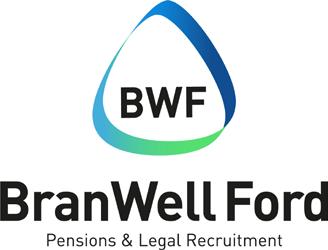





































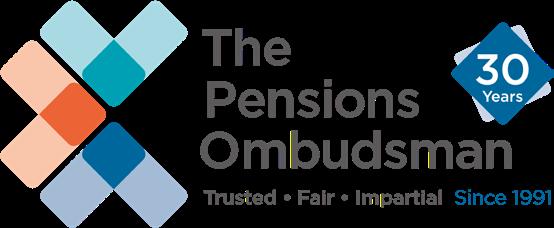














We would like to wish all our advertisers a very Happy Christmas
prosperous New Year C areer s UK ’ s l ead i ng pen si on s j ob boar d PE NSI O N Find your next job at www.pensioncareers.co.uk
and a

www.ipsgroup.co.uk/pensions Scheme Secretary experience preferred with APMI Governance and secretariat roles across trustees & EBCs Broad based client projects and appointments In house and client experience welcome Trustee Secretary and Governance Roles c£55,000 - £70,000 + Bonus & Package – UK Wide & WFH Contact: Andrew.Gartside@ipsgroup.co.uk - London Ref:AG135157 Premier specialist de-risking insurer Must have DB/De-risking admin background Team leadership and hand-on skills Excellent data/Excel skills imperative De-Risking Ops/Admin Manager To £80,000 + Bonus & Package – London / Hybrid Contact: Andrew.Gartside@ipsgroup.co.uk - London Ref:AG149438 Preparing, supporting and assisting with new business pitches Master Trust/DC and bid / sales background prerequisite Must have polished client facing/presentation skills Commercial acumen and C-Suite exposure required Master Trust Business Development Officer To £75,000 + Bonus & Benefits – London & Hybrid Contact: Andrew.Gartside@ipsgroup.co.uk - London Ref:AG148021 Multi-Employer pension scheme specialist Programme delivery skills essential Strong DB knowledge highly advantageous People/stakeholder management skills required Scheme Implementation Programme Manager To c£50,000 + Bonus & Benefits – Leeds/Hybrid Contact: Dan.Haynes@ipsgroup.co.uk - Manchester Ref:DH149377 Market Leading Independent Trustee Strong technical UK pension scheme knowledge essential Pension Admin/Consulting/Legal/Actuarial backgrounds considered Superb progression potential Trustee Consultant Support To £60,000 + Bonus & Benefits – UK Wide Contact: Dan.Haynes@ipsgroup.co.uk - Manchester Ref:DH149457 Market leading digital platform offering Content/copywriting skills essential UK pension scheme knowledge advantageous Strong presentational skills required Pension Communications & Engagement Associate To £55,000+ Bonus & Benefits – Home Based Contact: Dan.Haynes@ipsgroup.co.uk - Manchester Ref:DH148707 We also have a large selection of interim and contract vacancies available. Please contact Dan Haynes - Manchester Office dan.haynes@ipsgroup.co.uk London Tel: 020 7481 8686 Leeds Tel: 0113 202 1577 Birmingham Tel: 0121 616 6096 Manchester Tel: 0161 233 8222 Appointments Pensions Aspects December 2022 To advertise your jobs within Pensions Aspects or on pensioncareers.co.uk, please contact: adam@insidecareers.co.uk or call 0203 915 5940 Copy deadline: 16th JANUARY 2022 FOR FEBRUARY 2023 ISSUE 48 Appointments
Pension Engagement Specialist
HB18187 London/ Hybrid £Highly competitive pa
Client Manager
Pensions Consultant

Scheme Secretary
This is your chance to be key in implementing agreed pensions engagement strategies to all members of this company’s in house UK pension arrangements. This opportunity will work on a hybrid working model with 4 days at home and 1 in the office.
CB18233 Fully Remote £60,000 - £65,000 pa
Are you an Ops Manager seeking a new direction or currently working as a Client Manager in pensions admin but looking to change sectors? Working at the forefront of one of the UK’s leading firms, you will have full responsibility for all client related matters from development of new revenue, to delivery of client proposals.
Pensions Administration Team Leader
CB18163 Bucks / Berks Up to £42,000 pa
Communications Consultant

HB17912 Remote Role £40,000 - £50,000 pa
Would you like to work for an award winning company whose accolades include being voted outstanding in terms of personal development and balancing work/life by their own staff? If so, the team are looking to take on a Team Leader to meet client needs following an exciting period of growth.
We are seeking someone who knows about pensions and can use their communication skills, ideas and creativity to transform the member experience and deliver market-leading communications within this pensions’ communications consultancy.
Senior Pensions Technical Analyst
CB18177 B’Ham/Surrey/Bristol To £40,000 pa
Senior Associate (In-house)
An opportunity to work for an award winning and leading independent UK professional services company.
HB18236 London/Hybrid £Negotiable
Support the Pensions Manager in the running of this DB and DC pensions arrangement. You will manage the TPA relationship, ensure all pensions matters and legislation are compliant, help drive changes to scheme governance and manage scheme projects.

As Senior Technical Pensions Analyst you will be prevalent in keeping the pensions admin team up to speed with any changes within the pensions field that will impact scheme administration. Hybrid working to include 2 days in the office.
Pension Project Manager - Wealth
CB18232 Surrey/Bristol £40,000 - £60,000 pa
HB18188 Yorkshire £Highly competitive pa Superb opportunity for a Pensions Consultant looking to utilise both their Client Relationship Management and Business Development experience. You will lead and inspire clients across a broad portfolio, have full oversight of projects, manage risk and develop proposition.
Pension Administrator
You will be joining a team who have a fantastic reputation in their market project managing delivery member option projects to an outstanding level to clients. Types of projects will be ETV and pension increase exercises and Flexible Retirement options. You’ll have daily contact with Client, Introducer and The Trustee.
HB18190 London/Hybrid £Highly competitive pa
Rare chance to join this large in house pensions team to administer the DB and DC schemes providing a full cradle to grave service. This role is working on a Hybrid basis of 3:2.
Head of DC
HB18218 National Role £Highly Competitive Engaging senior leader is required to lead this wellestablished team of consultants to strategically oversee the delivery of DC projects, legislation and compliance.
Senior Pensions Administrator
Wealth of knowledge of authorised DC Master Trusts, Business Development and CRM is required.
Employee Benefits Consultant CB18226 Across UK £40,000 - £65,000 pa DOE
CB17919 W. Yorks / Hants To £34,000 pa This firm’s client and staff retention rate is exceptionally high and they continue to win new business which has created a new role. This is your opportunity to be an integral member of this very successful team and make a real difference. Previous DB experience is essential as you will be working with the Team Leader in supporting and developing your colleagues.
If you have experience in one of the following then this could be your next step forward: DC Pension Consulting, Employee Benefits, Actuarial or General Benefit Design. You will implement innovative benefit strategies after attaining an understanding of client needs, develop content for seminars and contribute to new business activities.
HB18121 Remote/ South East To £65,000 pa We are seeking a Senior Manager to lead a portfolio of UK DB & DC Pension clients on their secretariat and governance service. Responsibilities will include all aspects of service delivery and commercial considerations. Within a highly supportive working culture.
Pension Administration (All Levels) CB17711 London £30,000 - £39,000 pa Home to talented, well-recognised industry experts, this company is looking for pensions administrators. Working with you to develop your personal and professional skills to help you build a successful career. You will have full exposure to a programme designed around business and personal goals.

Pensions Team Leader HB18095 Bedfordshire £Highly competitive pa An in-house pensions role, managing a small team delivering a cradle to grave pensions administration service. You will shape and develop the team, and be responsible for all aspects of the day to day management and administration of the DB/DC pension schemes.
Senior Client Manager, Pensions
HB18221 Yorkshire £Highly Competitive A leading name in the market has a new senior level hire in its client management team in response to an influx of new clients and growth in business offering. Requires an experienced Consultant, sound technical knowledge, commercial acumen and APMI.
Senior Pension Administration CB17711 London £30,000 - £39,000 pa Home to talented, well-recognised industry experts, this company is now looking for pensions administrators (all levels). Working with you to develop your personal and professional skills to help you build a successful career, you will also be exposed to a programme designed around business and personal goals.
Pensions Specialist HB18202 Avon/Oxfordshire £Highly Competitive Support with the development, management and operation of the in house DB pension scheme with a particular focus of project delivery. This role is on a hybrid working model of 1-2 days a week in the office.
45
Christine Brannigan: christine@branwellford.co.uk Hayley Brockwell: hayley@branwellford.co.uk
www.pensioncareers.co.uk Sign up to jobs by email for the latest opportunities. Recruiting? In partnership with: Appointments Pensions Aspects December 2022
Christine Brannigan: christine@branwellford.co.uk Hayley Brockwell: hayley@branwellford.co.uk
Pensions Systems Analysts
To £65k DOE Associate Trustee Consultant


£DOE Home/Hybrid, Mixed Locations DBSystems London or NW England/Home CE15182
You will be a Pensions Systems Analyst/Specialist, keen to work for large in house pension departments (3 clients seeking similar roles currently). You will provide support & development for all pension software applications & undertake all system related activities.

Do you have an excellent grounding in UK pensions and ideally have experience of working with Trustee Boards, providing specialist governance support? If so, this could be your next exciting challenge working for this independent trustee firm.
Pensions Technical Specialist



From £25-£43k Senior Project Manager
Are you a highly experienced project manager who has the background and knowledge to successfully manage the implementation of all types of occupational pension schemes, as well as client projects?
£DOE Home/Hybrid, Mixed Locations DBTechnical Flexible Working Arrangements CE15500 You will be an occupational pensions Technical Specialist whose new role will be to support a range of technical projects whilst offering technical support and guidance to in house pension departments (roles with 2 clients).
Administrators to Team Leaders
£DOE Client Relationship
Manager
£DOE
If you possess the communication skills, as well as knowledge of the UK Pensions Administration industry this could be the role for you. This senior role will see you managing key clients for this leading provider.

UK wide, In house and TPA / Consultancy Admin Flexible Working Arrangements CE15516 We have multiple roles with multiple clients for pension administrators through to team managers currently, so no more considering a new job, start considering which new job! Vacancies range from permanent opportunities to day rate contracts.
GMP & Project Specialist


£Excellent Trustee Management roles
Up to £100k Essex / Home Working TD15257 Berkshire & Home Working TD14993
You will be a very experienced Senior Pensions Technician with extensive knowledge of data rectification and GMP calculations. This would be a great role for someone looking to develop a career in Project Management.
Contact Craig English (CE) craig@abenefit2u.com 07884 493 361
You will be joining this friendly Consultancy team who provide independent trusteeship, trustee executive, scheme secretarial, adviser selections and trustee effectiveness services. We have opportunities from Trainee Manager to Senior Manager roles.
Contact Dianne Beer (DB) dianne@abenefit2u.com 07747 800 740
Contact Tasha Davidson (TD) tasha@abenefit2u.com 07958 958 626
Working in partnership with employer and employee
To read more reviews from happy clients & candidates and for details on all our latest vacancies please scan here
If none of these roles appeal to you then why not visit our grotto website where you can view a sleigh load more. We can promise these opportunities are not just for Christmas. Se asons Greetings and a very happy 2023 to all! Thank you to all our Clients and Candidates for working with us during 2022. We look forward to being on hand whenever you might need us in 2023… “Fantastic, honest, frie ndly serv ice and communication at all times. A pleasure to deal with!” Scheme Administration Specialist contactus@abenefit2u.com Call us on 0207 243 3201 www.abenefit2u.com
The freedom to have a thriving career








With pension opportunities across our nine UK offices, within our management services, accounting, systems and administration teams, you can thrive in your career with BW.







Our people have the freedom to excel, through flexible working options and a future-focussed infrastructure that supports your career progression.
This is underpinned by our independence, which empowers everyone to do their best work. Visit our website to discover more and view current vacancies on our careers portal barnett-waddingham.co.uk/careers



































 Nicola Parish Executive Director of Frontline Regulation, The Pension Regulator
Nicola Parish Executive Director of Frontline Regulation, The Pension Regulator

 Leanne Carter Associate, Sackers
Leanne Carter Associate, Sackers















































































































